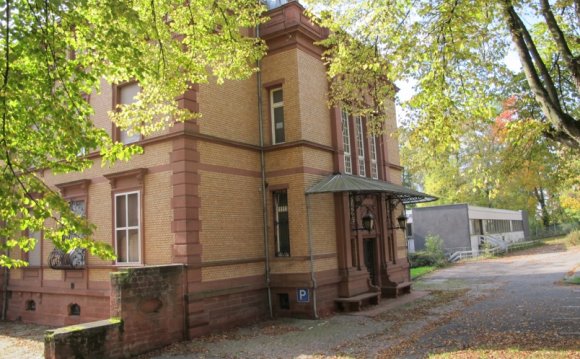
This is an article about a school of thought in the area of law. For economics, see historical school of economics.
The German Historical School of Jurisprudence is a 19th-century intellectual movement in the study of German law. With Romanticism as its background, it emphasized the historical limitations of the law. It stood in opposition to an earlier movement called Vernunftrecht (Rational Law).
The Historical School is based on the writings and teachings of Gustav von Hugo and especially Friedrich Carl von Savigny. Natural lawyers held that law could be discovered only by rational deduction from the nature of man.
The basic premise of the German Historical School is that law is not to be regarded as an arbitrary grouping of regulations laid down by some authority. Rather, those regulations are to be seen as the expression of the convictions of the people, in the same manner as language, customs and practices are expressions of the people. The law is grounded in a form of popular consciousness called the .
Laws can stem from regulations by the authorities, but more commonly they evolve in an organic manner over time without interference from the authorities. The ever-changing practical needs of the people play a very important role in this continual organic development.
In the development of a legal system, is it the professional duty of lawyers – in the sense of the division of labor in society – to base their academic work on law on ascertaining the will of the people. In this way, lawyers embody the popular will.
The German Historical School was divided into Romanists and the Germanists. The Romantists, to whom Savigny also belonged, held that the Volksgeist springs from the reception of the Roman law. While the Germanists (Karl Friedrich Eichhorn, Jakob Grimm, Georg Beseler, Otto von Gierke) saw medieval German Law as the expression of the German Volksgeist.
The German Historical School has had considerable influence on the academic study of law in Germany. Georg Friedrich Puchta and Bernhard Windscheid continued the Romanist vein founded by Savigny, leading to the so-called Pandektenwissenschaft which is seen as Begriffsjurisprudenz (conceptual jurisprudence).
Criticism[edit]
Karl Marx devoted an 1842 essay "The philosophical manifesto of the historical school of law" to criticizing the historical school of law, calling it the "sole frivolous product" of the eighteenth century.
Hugo misinterprets his teacher Kant by supposing that because we cannot know what is true, we consequently allow the untrue, if it exists at all, to pass as fully valid. He is a sceptic as regards the necessary essence of things, so as to be a courtier as regards their accidental appearance. Everything existing serves him as an authority, every authority serves him as an argument.
[edit]
- Marx, “The philosophical manifesto of the historical school of law” (1842), Karl Marx Frederick Engels Collected Works (1975), vol. 16, p. 203
RELATED VIDEO

![Metin2 Private Server 2015 English [OLD SCHOOL]](/img/video/metin2_private_server_2015_english_old.jpg)


 The Munich Business School (MBS) is a private university of applied science located in Munich (Bavaria, Germany). The MBS confers degrees in Business Administration and was ranked in 2004 as one of the leading private Business Schools in Germany.
The Munich Business School (MBS) is a private university of applied science located in Munich (Bavaria, Germany). The MBS confers degrees in Business Administration and was ranked in 2004 as one of the leading private Business Schools in Germany.







